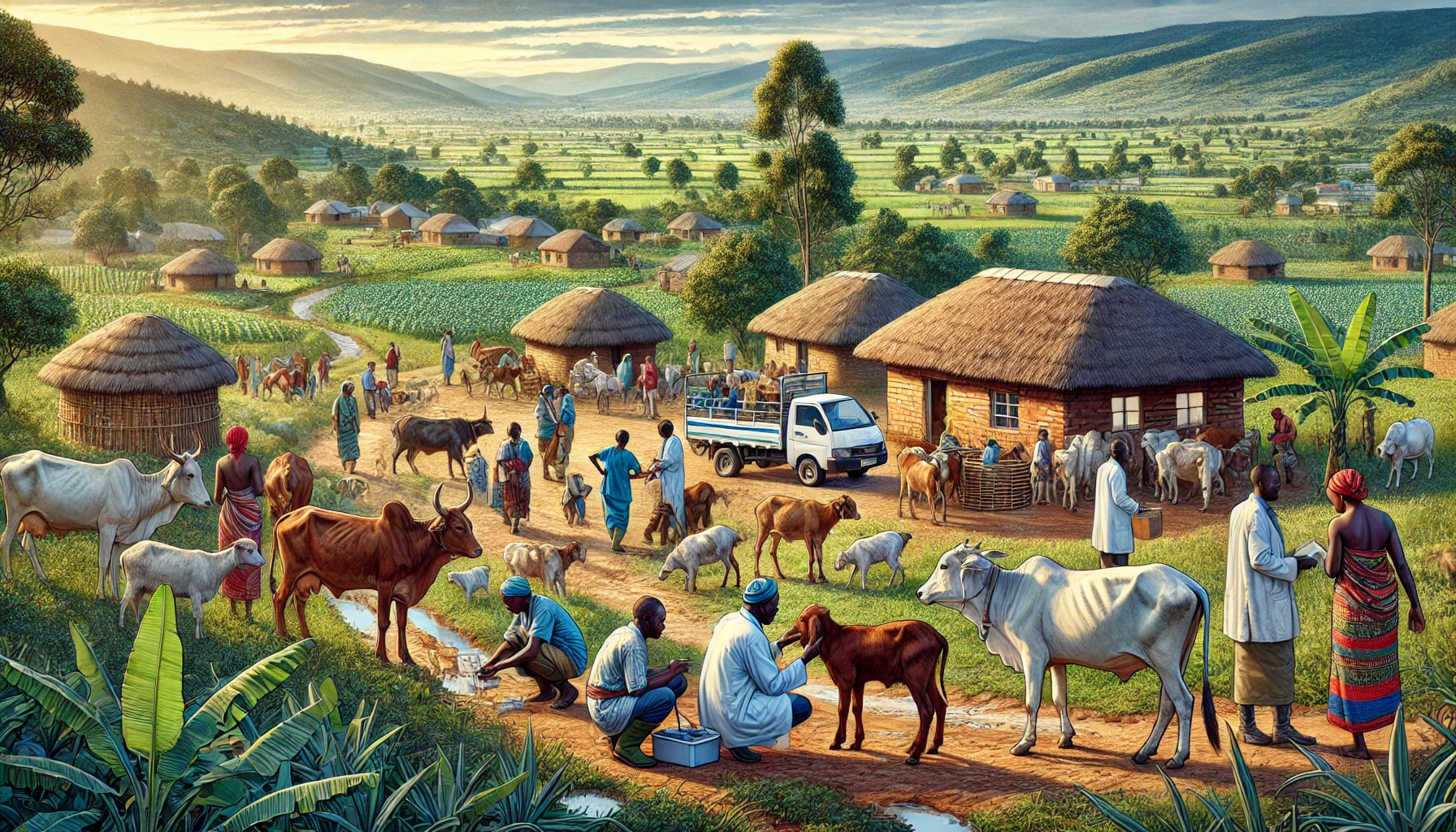SA Steps Up Fight Against Foot-and-Mouth With Mass Vaccination Drive
Steenhuisen warned farmers that failure to control the outbreak could have devastating consequences for both household incomes and national food security.

- Country:
- South Africa
Minister of Agriculture John Steenhuisen, joined by North West MEC for Agriculture and Rural Development Madoda Sambatha, has launched a large-scale cattle vaccination campaign in Rysmierbult, North West, to curb the spread of foot-and-mouth disease (FMD). The campaign, part of a broader national containment strategy, saw veterinary teams immunise nearly 300 communal cattle in its first phase, with thousands more to follow.
Safeguarding Livestock and Rural Economies
FMD, a highly contagious viral disease, poses a serious risk to livestock health, rural livelihoods, and South Africa’s beef industry. Steenhuisen warned farmers that failure to control the outbreak could have devastating consequences for both household incomes and national food security.
“Foot-and-mouth disease is not just a veterinary issue; it is an economic threat. If left unmanaged, it can destabilise rural livelihoods and undermine national food security. We must act swiftly and collectively,” Steenhuisen told farmers.
The minister’s message was echoed by MEC Sambatha, who underscored the importance of vigilance. He called on farmers to immediately report unusual symptoms and to cooperate fully with state veterinary officials to halt the spread of the disease.
Symptoms and Biosecurity Awareness
Officials reminded livestock owners to monitor animals for key FMD symptoms, including excessive drooling, mouth and foot sores, limping, reduced appetite, and lower milk production. Quick reporting of these signs is crucial, as delays could accelerate the spread of infection.
The Department of Agriculture has pledged to continue supporting affected areas through technical expertise, surveillance, and resources, while working with provincial and national partners to ensure a unified response.
Vaccine Procurement and National Task Team
On 1 September 2025, Steenhuisen announced the formation of a dedicated FMD Task Team to coordinate the national response. The task team, composed of government and private sector representatives, will report directly to livestock value chain roundtables, bringing together stakeholders across the industry.
The minister also confirmed that South Africa has procured 900 000 doses of FMD vaccines, valued at R72 million, from the Botswana Vaccine Institute. The first 500 000 doses, which arrived in June, were used to immunise cattle in KwaZulu-Natal, Limpopo, Mpumalanga, Gauteng, North West, and the Free State. The remaining 400 000 doses arrived two weeks ago, with 50 000 already distributed to hotspots.
“These vaccines will be allocated to provinces currently experiencing active outbreaks, including Free State, Mpumalanga, North West, and Gauteng,” Steenhuisen said.
Scale of the Outbreak
South Africa is currently grappling with 274 unresolved FMD outbreaks across KwaZulu-Natal, Gauteng, Free State, North West, and Mpumalanga. The disease has been confirmed in commercial beef herds, breeding stock, feedlots, dairy operations, and communal cattle herds — underscoring the widespread threat across all farming systems.
The minister acknowledged the challenge of containing the outbreak but stressed that the vaccine programme, task team, and biosecurity measures provide the foundation for progress.
Farmers Commit to Cooperation
Farmers in Rysmierbult welcomed the intervention, pledging to work closely with veterinary officials to protect their herds. Many expressed relief that vaccines are now being deployed more widely and that government leaders are engaging communities directly.
Steenhuisen concluded by reminding stakeholders that collective action is the only way forward. “This is a fight we cannot afford to lose. By vaccinating our cattle, reporting cases, and working together, we can safeguard our industry, protect our economy, and secure food supply for millions of South Africans.”










